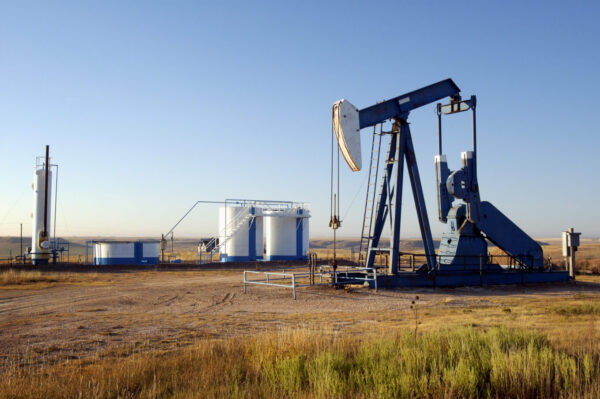While there has been a push to accelerate the development and implementation of renewable energy sources, fossil fuels continue to dominate the American energy market. According to the US Energy Information Administration, renewable and nuclear energy only accounted for 21% of the energy produced in 2022. The remaining 79% came from fossil fuels–petroleum, natural gas, and coal. With the US highly reliant on these fossil fuels, diversified gas and oil companies can help meet this demand. However, these companies could also benefit from a reliable HRO partner to streamline employee-related operations.

In the United States, oil and gas production is often highly politicized. Depending on the current administration, policies could be more restrictive or supportive of oil drilling and pipeline creation. At the same, international relations are continually evolving, shifting dynamics within the industry. Let’s explore the impact that key factors have on companies operating in this space.
- Conflict in the Middle East: Since the onset of the Israel-Hamas war in October, gas prices have been cheaper than before the attack. Although there is a concern that violence will escalate in the Middle East that could disrupt oil supplies, the current stability of the oil market has been largely in part to American oil suppliers. As of 2023’s final quarter, the US was producing more oil than any country in history, according to CNN. Diversified oil and gas producers have been able to dampen the shocks of the Middle East conflict. Still, if the situation escalates, the impact it will have on oil prices is uncertain.
- Competition From Latin America: Another challenge facing oil producers is growing competition from Latin American countries like Brazil and Argentina. Brazil ranks as the eighth-largest oil-producing country in the world and is anticipated to produce 50% of the world’s offshore oil by 2040.
- US Politics: An issue always hotly debated in presidential debates is the environment and oil production. According to Bloomberg, Republicans have blamed the Biden Administration for increased gas prices, criticizing the revocation of the permit for the Keystone XL pipeline and the restriction of oil and gas leasing on federal lands. On the other hand, former Vice President Mike Pence has proposed a plan that would include more oil leasing and fewer regulatory barriers.
- War in Russia and Embargos: The impact of Russia’s invasion of Ukraine and the following embargoes were felt across the world. Immediately following the invasion, the price of crude oil skyrocketed. Some regions, like the European Union, felt this particularly hard as a majority of its oil supplies came from Russia. At the same time, gas and energy pricing increased dramatically for US consumers. As a result, the Biden administration dug into the Strategic Petroleum Reserves to combat this price increase. In the time since the US has ramped up oil production and isexpected to see record levels of production in 2024.
- Fossil Fuels VS. Renewable Energy: Rather than seeing renewable energy as an adversary, some diversified oil and gas companies are embracing the potential of renewables. According to the Kleinman Center for Energy Policy at the University of Pennsylvania, some companies like BP and Shell have begun to invest in renewable resources believing it to be important to the companies’ future, building wind and solar businesses. Other companies like ExxonMobil and Chevron have been reluctant, citing their competitive advantages as being in oil and gas.
Diverse Extraction Methods
Fortunately for US oil producers, there are many ways to diversify production methods and many companies are doing just that. Diversified oil and gas companies are turning to methods such as traditional new vertical wells, shale oil fracking, and reviving old wells to extract gas and oil from American land. For example, one US-based company called Diversified Energy has turned to reviving old vertical wells to extract remaining oil and capping other wells in its operation region.
Additionally, these companies also have an opportunity to evolve their business processes to lessen the impact of fossil fuels on the environment. The aforementioned company has placed such a heavy focus on sustainability that it was awarded the Gold Standard Pathway by the UN’s Oil & Gas Methane Partnership 2.0. Many of the old wells operated by the company were drilled decades ago, making this feat even more impressive.
How Oil and Gas Companies Benefit From an HRO
However, to truly support US-based operations, diversified oil and gas companies should outsource their HR functions to an HRO. For growing energy companies, especially those trying to navigate the complexities, uncertainties, and fluctuations of the oil and gas market, there are many business functions to juggle. From managing strategic initiatives to overseeing employees, it can be difficult to focus on strategic decisions when much of day-to-day operations are spent dealing with HR.
Outsourcing HR functions, especially for a company with 75 to 6,000 employees, often is a great way to realize greater operational efficiency and get back to focusing on the core business priorities. Relying on an HRO can:
- Control costs
- Improve accuracy
- Increase efficiency
- Enhance compliance
- Free up valuable time
- Offer better employee experiences
However, not all HROs are created equal. An HRO partner should understand the challenges uniquely facing the oil and gas industry. For example, an HRO should be able to help their oil and gas clients:
- Navigate the labor market and identify solutions to deal with slow hiring times
- Minimize the impact retiring employees will have on the company
- Address skills gaps that have arisen from new technologies in the industry
- Improve the employee experience to attract and retain great talent.
- Diversify their workforce by recruiting female talent
An experienced HRO should be able to identify these challenges and more, working with their client to overcome these obstacles. Fortunately, Corban OneSource has more than two decades of experience, making us well-equipped to address any HR challenge facing our oil and gas clients. Working with companies that have between 75 and 6,000 employees, our expert HR professionals are well-versed in compliance, benefits administration, payroll, and more.
If you’re ready to explore more reasons why outsourcing HR is a good idea for oil and gas companies, contact the team at Corban OneSource today.



